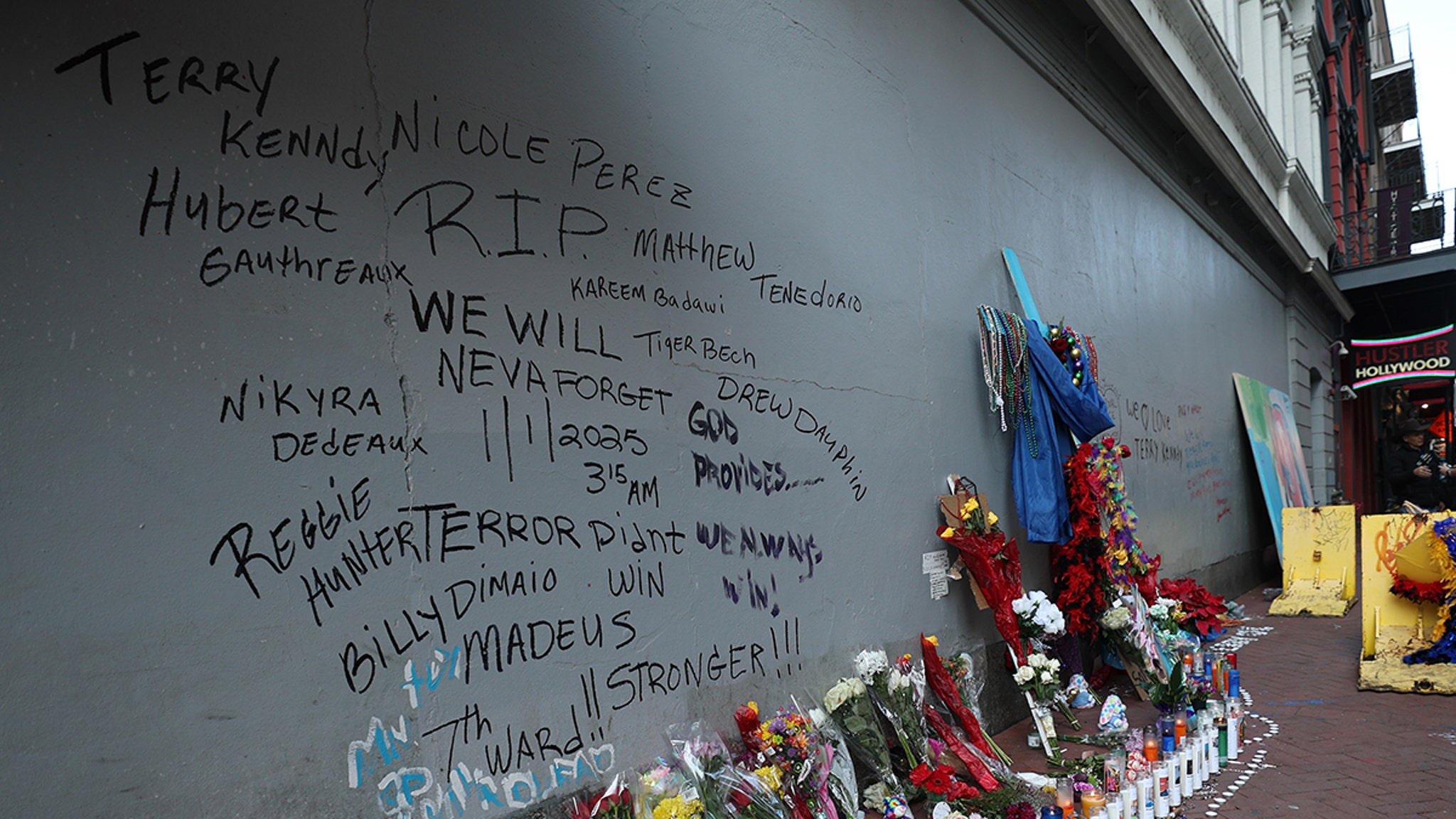Henry Rollins is one of us. Sure, you perhaps know him as the former frontman of Black Flag and Rollins Band. But a common thread that’s followed him throughout his career is that he’s a major music nerd with an insatiable appetite for acquiring albums and musical ephemera.
“[It’s] what keeps me, at my old age, still enthusiastic about Record Store Day and eBay, Discogs, having a want list and hitting the record store before sound check, you know, in whatever country you’re in, because you never know what’s in there,” he shares, during a lengthy conversation on the UCR Podcast. “If I ever lose that enthusiasm, which thankfully gets worse and worse for me as I get older — I would hate that, because it’s kind of that eternal happy place, which I’ve had since I started going to a record store with intensity at age 18. It’s like every weekend, I’m at that record store trying to find punk rock records.”
He’s been channeling that endless enthusiasm into a series of books aimed at the fellow fanatic, appropriately titled Stay Fanatic! The exclamation point is key, he will tell you, as it’s meant to communicate among other things, the excitement that one feels with each new discovery. “I just got this Belgian pressing of this, Fanatic! It’s insane! You’re hoping the person reading goes, ‘Oh man, I love that record,'” Rollins says. “I started writing that way. I live alone. I work alone. I’m a very solitary cat. Basically, it’s a fanzine, where fanzines are examples of enthusiasm.”
“I’m so into this band, I’m going to write about Billy Idol for 33 pages. It’s like the nerd girl at 15 who has a crush on whoever it is, like Duran Duran, and her notebook was full of love letters to the players. That’s kind of like a fanzine,” he explains. “It’s a love letter to music. I started writing many years ago and after two years of writing like a mad fool, I harvested my courage and read it back. I’m like, ‘Okay, this might work. But it’s going to need a lot of pictures to really make it come alive. So I’d better get a scanner. That was the start of that series. I think the writing started in 2013 and sadly, it goes on to this day.”
Stay Fanatic!!! Vol. 4 is the latest edition, a hefty volume subtitled, “Lessons in Possession and Confessions of Obsession.” With over 700 images and what Rollins describes as a “punishing 165,000 word count,” it delivers a healthy dosage of the passionate discussion and dissection that he’s become known for with his speaking tours that typically focus on a free-flowing range of topics. For fans who have enjoyed his musical discourse, Stay Fanatic!!! offers plenty in that regard, “featuring reportage on rare records, flyers, test pressings, acetates, set lists, record stores, coffee shops and cramped backstage areas.”
In conversation, he’s similarly got opinions at the ready. In the excerpt that follows, Rollins shares a few of his favorite musical loves with us. You can listen to the entire interview below. It’s also available at Apple, Spotify and wherever you get your podcasts.
Where to Start With HawkwindDoremi Fasol Latido, Space Ritual — those two. Anything with Lemmy [is essential].One of the last times I saw him, I wrote a screenplay for a film he was in and the director asked me to pick him up, take him to the set and wrangle him. Because he’ll leave after one take. So as I was on the way with him going to the site, I said, “I listened to Fasol Latido today, it’s a perfect record.” He went, “Too much acoustic! You want Hall of the Mountain Grill!” I went, “Well, Lem, I like that one too!” But I was introduced to Hawkwind by Dez Cadena of Black Flag, who had amazing taste in music. His father was the legendary producer/engineer, Ozzie Cadena. He worked [on projects involving] Charlie Parker and Lightnin’ Hopkins. He ran the Lighthouse Jazz Club. So Dez was birthed in killer music. He put on Space Ritual and maybe I’d heard the name Hawkwind, because it was that band the dude from Motorhead was in before Motorhead. I had “Ace of Spades” and that’s kind of where it fell off. We were at SST Records in 1981 and he put Space Ritual on. I was like, “Okay!” “Orgone Accumulator,” like, what is this? He explained it to me and I’ve been a fan ever since.
READ MORE: How Motorhead Set a New Standard With ‘Ace of Spades’
Listen to Hawkwind’s ‘Orgone Accumulator’
The Best Led Zeppelin AlbumHouses of the Holy. It used to be Led Zeppelin IV when I was 15. My school ended on Friday, I’ve got 48 hours away from the gulag. The first thing I would do before I had to go to work, I’d come back and I’d put the record on as I changed into my other outfit to go to the pet shop or the movie theater or whatever job I had. I’d have like 20 minutes before I had to go work the shift and it was always Zeppelin. Because it’s such a great band, of course and such a great record. As I got older, Ian MacKaye, my best friend, the guy from Fugazi and Minor Threat, he’s the musician. He could pretty much play everything on stage. I can’t play anything, but him as a musician, me as just a fan, we started deconstructing records. Like, when we were kids, what makes this record go? We’d go see Song Remains the Same. It was a big screen, Saturday night midnight movie and we’d go see it because it was a cheap way to see a rock concert. We started trying to figure out, what makes Zeppelin cook? Who was the singer? Drill down deeper and the deeper you go, I mean, all four of them are great. But of course, it’s [John] Bonham. Other than it just being a rock band with an amazing singer, it’s Bonham. But why? Well, it’s what he’s playing. Listen even more and it’s what he’s not playing. It’s the beats he skips. Ian has deconstructed it — he’s got those bootlegs with just the drum tracks, let’s listen to this. See that? He slipped in….you know, Ian gets all technical. So Zeppelin, that aspect, fascinates me. Because it’s like, what is Bonham doing? There’s so many interesting moves on Houses of the Holy. [Jimmy] Page’s guitar sound on that record — and the riffs are so fluid. There’s no hard edges. [Robert] Plant is insanely good. The whole band is great and the songs, it’s just such a beautiful record. There’s no Zeppelin record I don’t like — it’s kind of like the Beatles, they just didn’t miss.
READ MORE: Led Zeppelin’s ‘Houses of the Holy’: The Story Behind Every Song
Listen to Led Zeppelin’s ‘No Quarter’
Black SabbathWhat is it about Black Sabbath? I was in this band, Black Flag, many years ago and we were all about live performance. You know, we’ve got to destroy you live. Greg Ginn knows his music and he said, “If you don’t have the rhythm section, it doesn’t matter what you put on top. Great guitar player with a bad drummer and bass player, it doesn’t matter. Great singer? If the bass and drums aren’t locking, you don’t have anything. That made me listen to Black Sabbath differently, like, what makes that go? Ah, well Bill Ward is behind the beat! Ba-boom! You can be on the beat, behind the beat or ahead of the beat. It all kind of works. He’s behind it! Geezer Butler is elastic. He’s like mercury, there’s just no hard edges with that guy. It almost sounds fretless, what he’s doing. What a great rhythm section. If you put a timer up to them, Bill is not exactly…..like, you can’t do that with him. He’s like Keith Moon, it’s more emotive. But when you really get into Sabbath, just listen to the bass and drums. You’re like, “Wow, that’s where it’s coming from.” [Tony] Iommi, Ozzy [Osbourne] or [Ronnie James] Dio, or whatever, they get to be the people on top of it. But really, it’s coming from Geezer and Bill Ward. That’s the power center — and the rest of the band is talented too.
Listen to Black Sabbath’s ‘Sabbra Cadabra’
There’s a Different Way to Listen to Music…I was in a band with some serious musicians many years ago and the endless van rides, you know, it never ends. We get into those elongated, nine hour discussions, kind of like they do on ESPN, [where they are] talking about, like some wide receiver, and they all get mad at each other. Lots of hyperbole, [but] low impact — no one’s fighting at the end of it. We argue the entire time, arguing about who’s the better guitar player. Eric Clapton or Jimmy Page, and it was Andrew [Weiss] the bass player [in Rollins Band], who is a really smart guy. He said, “Have you ever listened to a Beatles record and listened to [Paul] McCartney?” It’s like, “Well, yeah, great singer.” “Listen to his bass playing.” I go, “I’ve never thought of the Beatles, from the rhythm section.” He goes, “Check it out.” McCartney is an insane bass player, and I’ve never listened to the Beatles the same ever since — and Ringo [Starr], he doesn’t get nearly enough credit, great drummer. But McCartney is fascinating as a bass player.
Then we’re listening to Bob Marley one day, and Andrew said, “Listen to Bob Marley’s guitar playing,” which I’ve never done. I’m just singing along with it because it’s a lyrical thing for me. It’s a message. But you listen to what he’s doing, and it is so stoned, it is so cool. You know, the point I’m making is, quite often there’s more music on that record. These musicians, they’ve always known this, but you’ll go your whole life not knowing how unbelievable the Stax rhythm section is on all those records, until you listen to what the snare is doing on all those Al Green records. You’re like, “Oh my God, that’s the hook!” The hook is in the snare. The rest of the band is killer, but it’s all about the back of the beat, that pocket. Being around people — musicians who really dissect music — me, I can’t play a single instrument at all. That’s how I listen to a lot of music. When it moves me. I try and deconstruct it a little. Mainly, I just want it to move me emotionally. But sometimes it has become so fascinating with an iconic band, like Zeppelin or Sabbath, I just want to know what makes it tick. That’s been really rewarding, because you play the same record [and] by the 500th time you’ve played whatever it is, you can hear it differently.
Listen to Beatles’ ‘Taxman’
Listen to Henry Rollins on the ‘UCR Podcast’
Punk Rock’s 40 Best Albums
From the Ramones to Green Day, this is musical aggression at its finest.
Gallery Credit: Michael Gallucci







